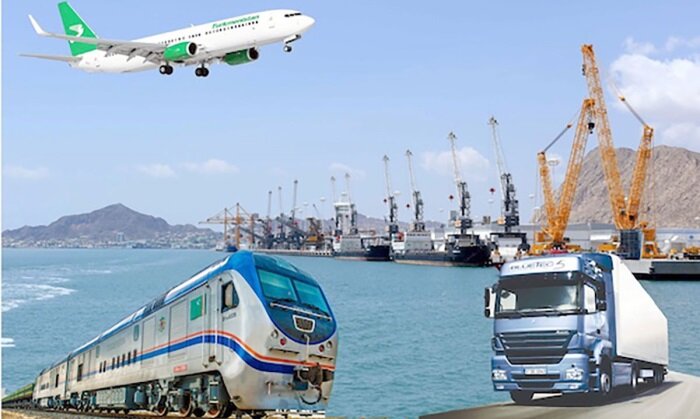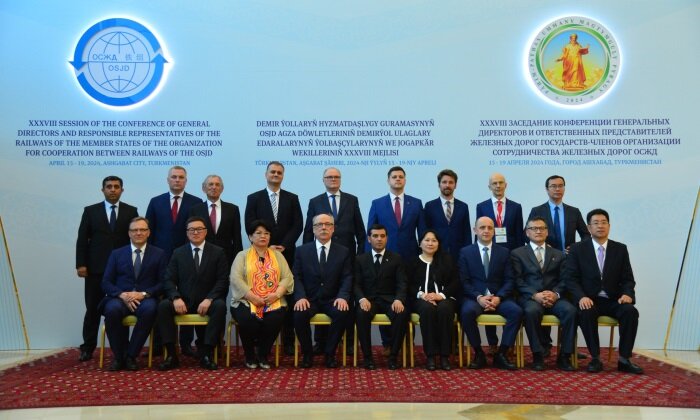An expert Yevgeny Kudryats also drew attention on the position of Dushanbe regarding the new government in Kabul.
 In August, the Taliban (a terrorist organisation banned in Russia) surprisingly seized power in Afghanistan. The leadership of the neighbouring republics did not expect the Taliban to be able to «raise the head» so quickly after the U.S. military troop withdrawal from the country.
In August, the Taliban (a terrorist organisation banned in Russia) surprisingly seized power in Afghanistan. The leadership of the neighbouring republics did not expect the Taliban to be able to «raise the head» so quickly after the U.S. military troop withdrawal from the country.
For example, Uzbekistan has been building partnerships with Afghanistan ruled by a pro-American leader for several years. Tashkent emphasised that along with stabilizing the internal situation, Kabul should be involved in regional projects. What is the current attitude of the Central Asian countries to the change of power in Afghanistan, what is their position regarding the future of this state? For readers of CentralAsia.news, an independent expert Yevgeny Kudryats commented on the positions of the CIS member states. He also emphasised that Dushanbe had a very negative attitude toward the new regime in Afghanistan.
Ready to cooperate, but not all
The interlocutor recalled that the situation in this country became the main topic under discussion at the 76th session of the UN General Assembly. As for the Central Asian states, Uzbekistan, Kazakhstan and Kyrgyzstan intend to renew economic partnership with Afghanistan. They expressed readiness to continue interaction.
Dushanbe is in no hurry to do business with the Taliban even for the mutual economic advantages.
«Tajikistan insists on the establishment of an inclusive government while respecting women’s rights and calls on to end the economic blockade of Panjshir, where ethnic Tajiks live,» the expert said.
Kudryats said the Central Asian states are ready to help Afghanistan come through the current political and economic crisis. In his opinion, Kazakhstan also has an interest in this region in terms of wheat and flour supplies, and its exports will continue. The Central Asian countries have an understanding that the Taliban has come here for a long time, while this does not mean its recognition.
Kudryats clarified that Afghanistan was of particular importance for Uzbekistan — too much had been invested in the projects of political and economic ‘capital’, therefore there was a great interest in restoring interrupted ties. Tashkent understands that the Afghan economy has suffered greatly and it will take a long time to for it to recover fully.
The status of the Taliban and the position of Tajikistan
Meanwhile, we do not talk about a speedy resumption of full cooperation between Afghanistan and the rest of the region. Kudryats noted that the recognition of the legitimacy of the new regime was the cornerstone.
The neighbouring republics do not forget that the Taliban came to power by no means democratically. Therefore, that comes to «the fork».
«On the one hand, the new authorities in Kabul need to be interacted with somehow in any case. On the other hand, it is also somehow illogical to recognize terrorists as legitimate authorities. In any case, this issue is still acute and relevant,» Kudryats stated.
The positions of Tashkent and Dushanbe look the most contrasting. In principle, Uzbekistan is not shy in recognizing de facto power of the Taliban. At the same time, Tajikistan’s attitude towards the terrorist movement is extremely negative. It is not impossible that the authorities of Tajikistan do not believe the Taliban’s promises not to encroach on territorial integrity of its neighbours. In addition, two other factors make Tajikistan nervous.
«We shouldn’t forget about drug trafficking. As is well known, drug trade is one of primary sources of financing for the Taliban. Although, they ostentatiously pretend that they are combating narcotics trafficking. The Afghan factor might also affect the domestic agenda, when the authorities began to accuse opponents of radicalization, which would lead to repressive actions against them, including criminal prosecution, the expert added.
We add that the Panjshir province is resisting rule by the Taliban. The overwhelming majority of the population in it are Tajiks. One of the leaders of the National Resistance Front is Tajik Ahmad Masud, the son of the famous late commander Ahmad Shah.






